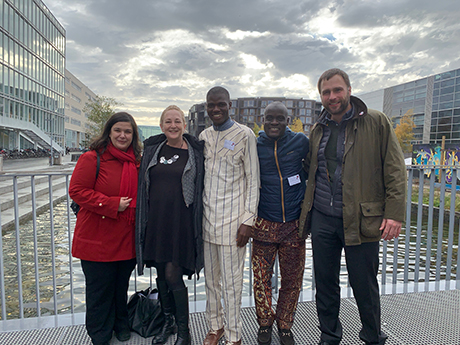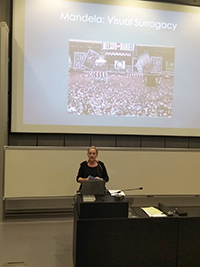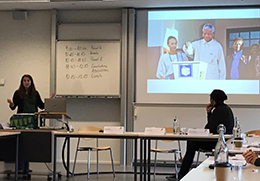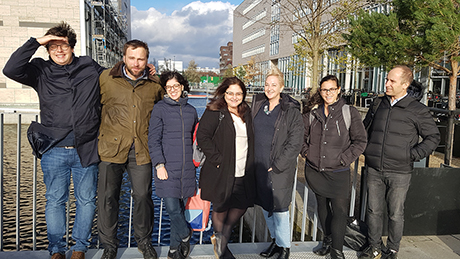Recent Conference: Celebrity and Protest in Africa and in the Anti-Apartheid Struggle
The Centre of African Studies recently co-hosted an international conference on ‘Celebrity and Protest in Africa and in the Anti-Apartheid Struggle, 29-31 October 2018.

The conference was convened together with the Department of English, Germanic and Romance Studies at the University at Copenhagen and the research cluster of the European Research Council Project APARTHEID-STOPS, “The Perception of Apartheid in Western Europe 1960-1990” at the Hebrew University of Jerusalem.

The main focus of the conference was on the role of celebrities and celebrity culture both in the apartheid struggle, and also in relation to arenas of political or cultural struggle and protest within Africa more generally. More specifically, the conference was concerned with celebrities as representatives of and/or engaged with various kinds of actions related to anti-apartheid politics, humanitarianism, protest and change. The conference had a strong focus on South Africa and the anti-apartheid struggle, but also included important presentations on African cases concerned with the relationship between celebrity, solidarity and protest.
The interdisciplinary conference consisted of two public keynote lectures and eight thematic panel discussions. The keynotes were presented by Professors Louise Bethlehem (Hebrew University of Jerusalem) and Lisa Ann Richey (Copenhagen Business School). Bethlehem addressed the neglect of Africa in analyses of celebrity and agency, and turned the gaze to Africa itself to broaden our understanding of celebrity and protest in a continental frame. Richey’s lecture provided a framework for thinking about global neoliberal politics of celebrity humanitarianism, focusing on identifying what sorts of politics and political solutions are being advocated by celebrity humanism within this current framework.

The panels offered rich and interesting discussions touching upon celebrity protest and activism as among a range of actors, including poets, musicians, politicians, religious leaders and experts. Addressing these diverse positions, celebrities were critically analysed as agents of change, humanitarians, protesters, diplomats and speakers against injustice, humanitarian catastrophes and inequalities. The discussions also raised questions about the nature of neoliberalism more generally, about both international and local politics, and the relationship between global south and north.

